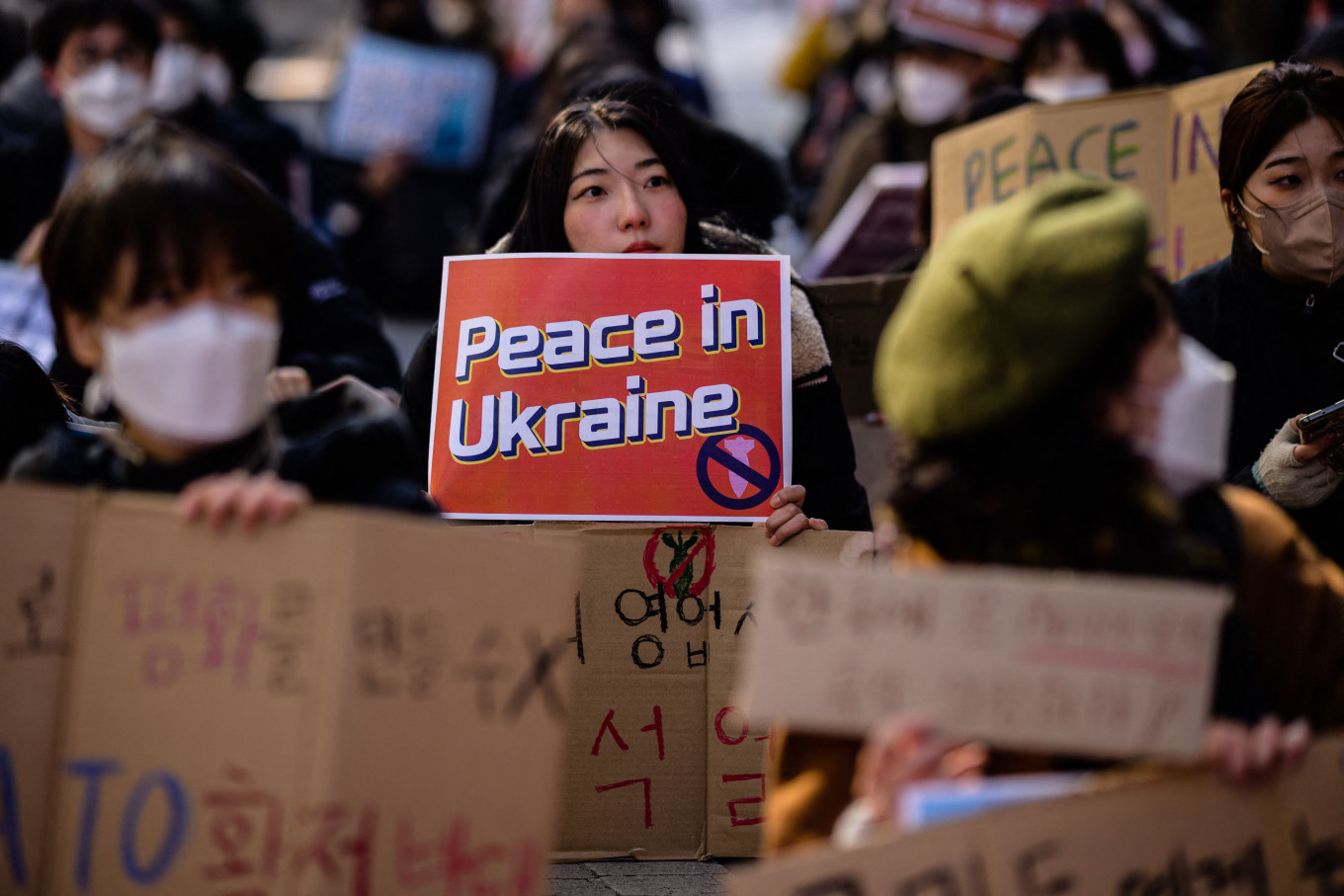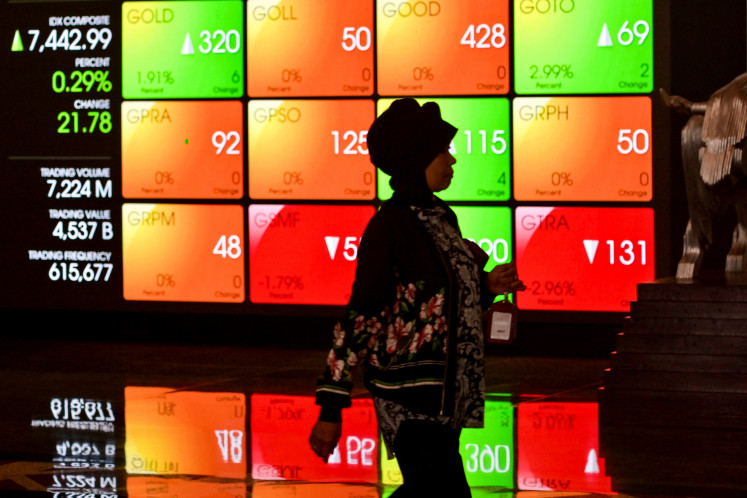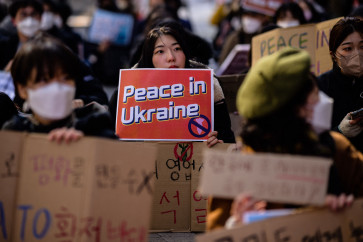Weighing inflationary risks from geopolitical turmoil
Rising global oil prices could have several negative impacts: rising inflation, rising fuel imports, weakening trade performance and, hence, a weakening of the rupiah. Therefore, prompt and appropriate policy responses are crucial.
Change Size
 People gather during a protest in Seoul on Feb. 25 to mark one year since Russia's invasion of Ukraine. The demonstration took place a day after the anniversary of the start of Europe's largest conflict since World War II. (AFP/Anthony Wallace)
People gather during a protest in Seoul on Feb. 25 to mark one year since Russia's invasion of Ukraine. The demonstration took place a day after the anniversary of the start of Europe's largest conflict since World War II. (AFP/Anthony Wallace)
O
ver the past few years, many countries have struggled to reduce high inflation rates. The economic recovery post-pandemic has been followed by a surge in inflation rates around the world. The situation got worse with the eruption of the Russia-Ukraine war.
In the United States, the annual inflation rate in June 2022 was 9.1 percent, the highest level in the last 20 years. A similar thing also happened in the eurozone, where annual inflation reached 10.6 percent at the end of 2022, which is also the highest level in the last 20 years. As a result, central banks including the US Federal Reserve, the European Central Bank and the Bank of England are simultaneously struggling to reduce inflation by raising policy rates.
The Fed has aggressively raised interest rates by 525 basis points (bps) since the end of 2022, from 0.25 percent to the current 5.50 percent. The ECB also tracked a similar policy, implementing an aggressive interest rate increase of 450 bps in less than one year. As a result, the high-interest rates business environment has had several impacts on the economy, namely hampering business operations and credit creation, as well as hindering investment.
This situation has limited economic activities and ultimately poses the threat of a potential economic slowdown in 2023, which could continue until the next year. The International Monetary Fund projection showed that the global economy in 2022 grew by 3.5 percent, while in 2023 it is expected to only grow by 3.0 percent. A phenomenon called an inverted yield curve also emerged; an unfavorable condition in which long-tenor bond interest rates have lower yields than short-tenor bonds, indicating that investors were considering various risks including recession possibility.
Yet, despite various threats of slowdown, the economy in the US is somehow still growing quite strong, mainly driven by strong household consumption. The US labor market remains tight, creating upward pressure on wages. The US inflation rate has come down to a 3.7 percent level but is still considered high and unsustainable. Fed chair Jerome Powell's latest comment still indicates a solid US economy that can still put pressure on inflation. Moreover, the upcoming release of the US GDP growth figure for the third quarter of 2023 (3Q23) is estimated to show 4.3 percent year-on-year (yoy) growth, faster than the realization of 2.1 percent yoy in 2Q23. Those factors have encouraged the possibility of higher for longer interest rates, becoming one of the closely watched phenomena in the global market.
Meanwhile, in Indonesia, post-COVID-19 economic activity did not necessarily increase the inflation rate at a sudden pace. When the government gradually dropped public activity restrictions (PPKM), starting in July 2021, the domestic inflation rate remained stable at around 1 to 2 percent on an annual basis and was successfully maintained until early 2022. Yet at the beginning of 2022, the geopolitical conflict between Russia, one of the world's largest crude oil producers, and Ukraine caused a sharp rise in world commodity prices, including coal and crude oil. At that time, Indonesia benefited from the sharp rise in exported commodity prices such as coal and crude palm oil, which led to a large surplus in the country’s trade balance.
However, Indonesia was also negatively impacted as the rise in crude oil prices created inflation pressure. As the world price of crude oil touched the price of US$97.7 per barrel in August, the government finally decided to increase the price of several refined fuel oils, one of which was Pertalite. The increase in the Pertalite price, which is the most widely used fuel by Indonesian households, ultimately caused domestic inflation to escalate. In September last year, Indonesian inflation was recorded at 5.95 percent yoy, significantly higher than 1.60 percent yoy in September 2021.

















